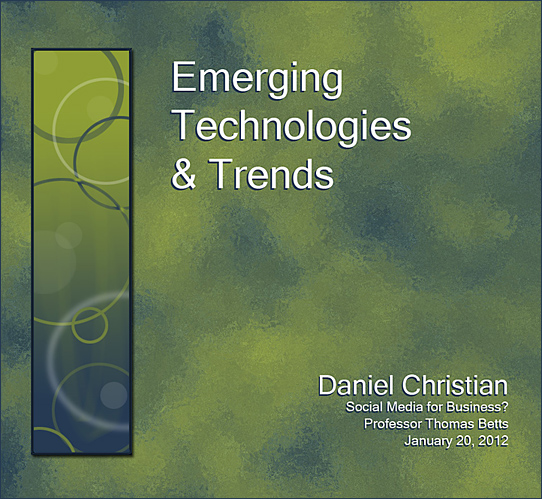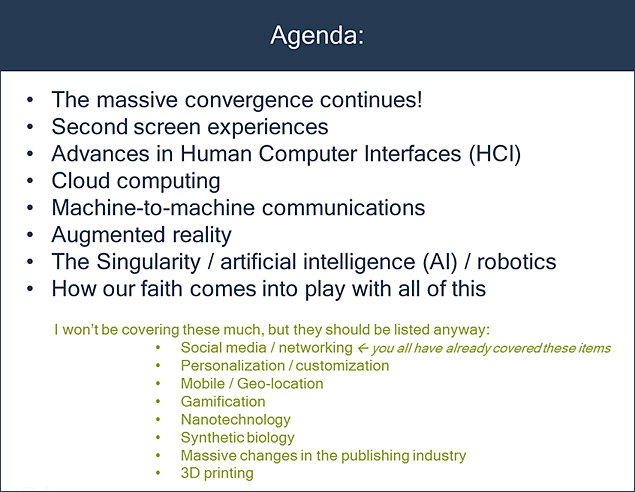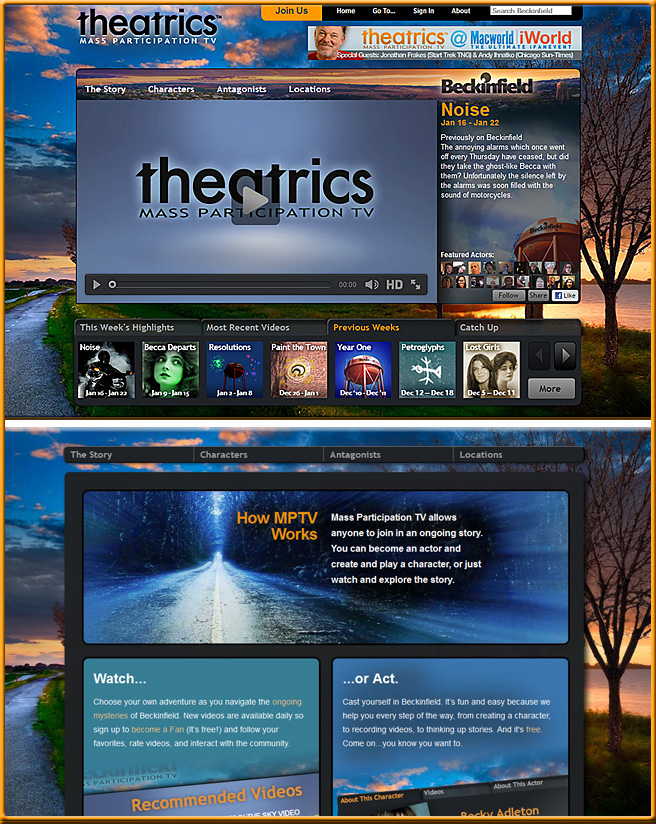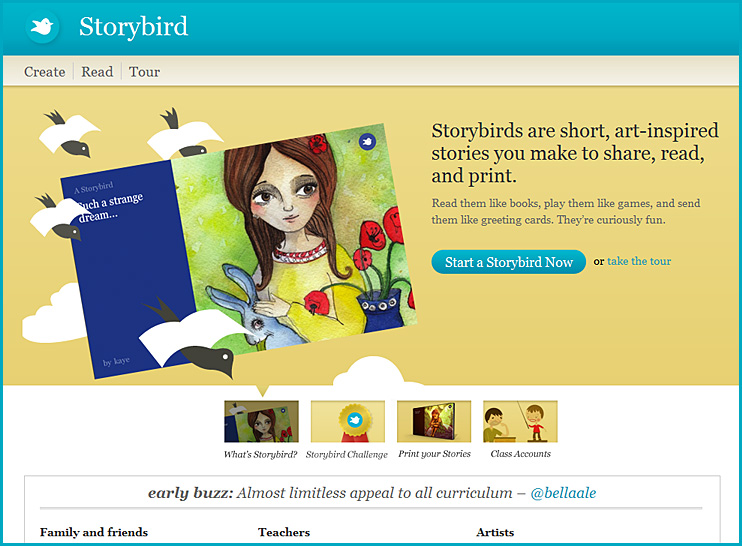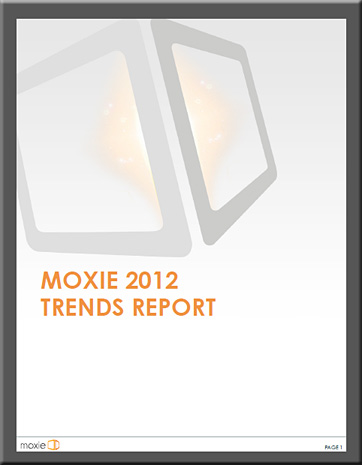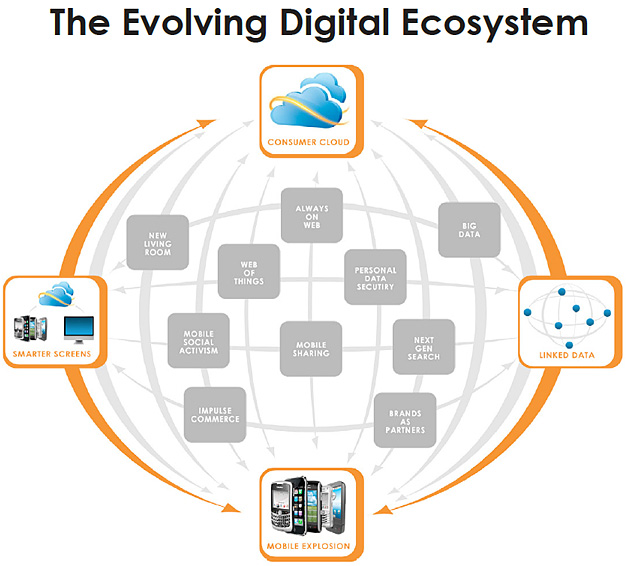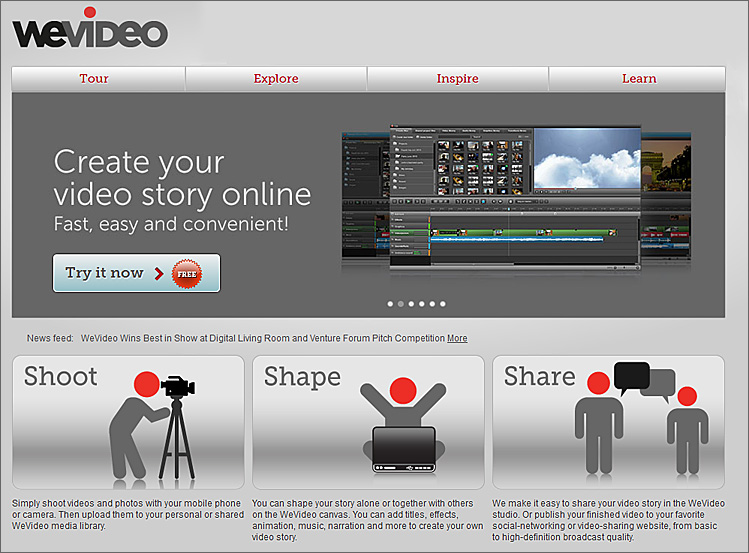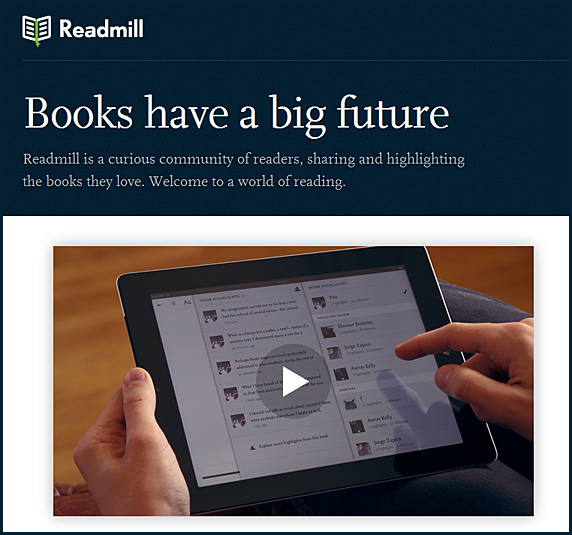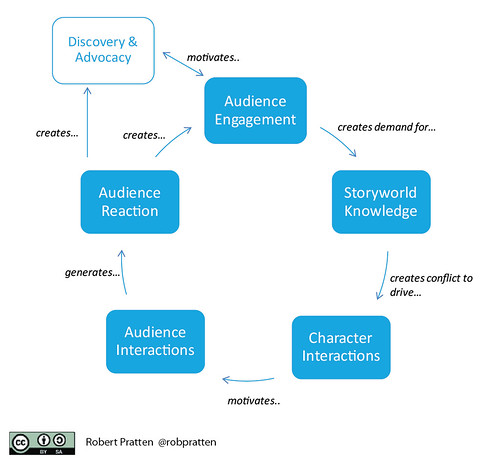Blowing out the digital book as we know it –– from MindShift by Tina Barseghian
Excerpt (emphasis DSC):
Inkling also produced the epic The Professional Chef by the Culinary Institute of America. The book in its entirety costs $50, but you can also purchase individual chapters for $3 a piece. The new model makes book buying much like buying music — choose only the pieces you like best. MacInnis fluidly demonstrates how to float from one chapter to the next, launch videos, close in on images, tap on sidebars and recipe instructions. It’s like watching a magician performing sleight-of-hand tricks.
From DSC:
Books — and textbooks — will continue to be more cloud-based, interactive, multimedia-based, and will be able to be completely up-to-date as they move more towards becoming like apps (vs. hard copy books/textbooks). I see more experimentation in terms of the implementation of social media tools as well as in trying out different business models. However, when all’s said and done (at least for this next phase), I hope that we can get to the iTunes-like purchasing model mentioned above. I think students, faculty, and staff at educational institutions would benefit greatly from this.















